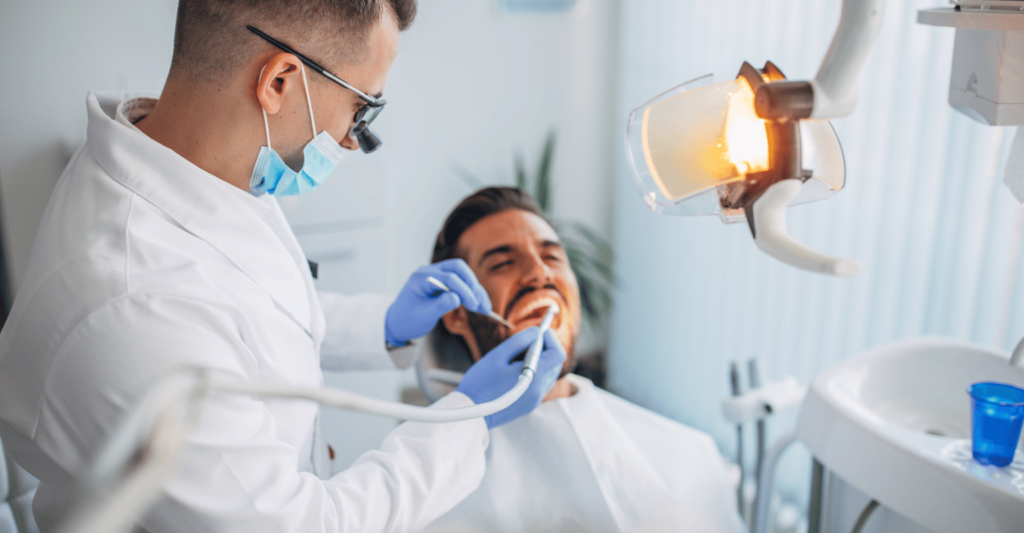
5 Common Dental Emergencies and What to Do Before Seeing a Dentist
Unfortunately, dental emergencies rarely wait for a convenient time to come by. Occasional dental emergencies, like toothaches, can occur when performing a root canal. Still, more serious emergencies may involve a tooth that has been broken along the way or a tooth that a trauma may have knocked out, and knowing how to respond before meeting the dentist can make a huge difference in keeping your dental health as well as response and pain. You need access to a high-quality emergency Nashville dentist to ensure you get cared for. In this guide, we’ll discuss five examples of typical dental emergencies and tips for each to help you manage the situation while you wait to visit your dentist for urgent care.
Toothache: A Common and Painful Issue
One of the common dental emergencies we experience here at Young Dental Care is toothaches ranging from mild to severe pain. These usually indicate an underlying dental problem, such as a cavity, infection, or gum disease. If a toothache does not occur, you have to recognize the signs and symptoms of a toothache and take suitable measures to ensure that the trouble no longer gets severe.

Common Symptoms Of A Toothache
- Continual pang of the tooth or jaw
- However, chewing can cause sharp or stabbing pain.
- Sensitivity to hot, cold, or sweet food or drinks.
- Pain and swelling or inflammation around the area of the tooth
- In the worst cases, fever, headaches, or chills.
What To Do
- To cut down on bacteria and relieve pain, gargle with warm salt water;
- Place a cold compress on the outside of your cheek for swelling.
- Please don’t put the painkiller on the gum, as it irritates the tissue.
- You have to call an emergency dental clinic for immediate attention.
Good oral hygiene practices, such as brushing and flossing, and regular dentist visits prevent future toothaches.
Chipped Or Broken Teeth: More Than Just Cosmetic
A chipped or broken tooth can result from an accident, a hard object in the mouth, or untreated cavities. If not treated, it can develop into a more serious issue, such as infection or nerve damage, but it may merely seem like a cosmetic issue.
What To Do
- Rinse your mouth with warm water to wash the plate of the area.
- If bleeding, apply light pressure with a gauze or a clean cloth.
- Place a cold compressor on your cheeks to remove swelling and pain.
- Do not chew on the sore side of the mouth.
Your dentist may be able to treat the visible surface of your tooth with dental bonding or recommend veneers or a crown to repair the appearance and function of your tooth. It is also essential to steer clear of hard or crunchy foods and wear a mouthguard when playing sports so that a similar injury does not re-occur.
Lost Filling Or Crown: Temporary Fixes For A Big Problem
Fillings and crowns cover weakened areas of a tooth that have experienced decay or damage. After a filling or crown falls out, an exposed tooth can become even more damaged or infected. Doing this as soon as possible can reduce the danger before you reach your dentist.
What To Do
- Save the fallen filling or crown and take it along to the dentist.
- After this procedure, rinse your mouth with warm water to maintain the cleanliness of the area.
- Temporarily cover with dental cement or sugarless gum over the exposed tooth.
- Try not to bite on the side of the missing filling or crown කරන්න
Depending on how damaged your crown is, your dentist can reattach it or make a new one. However, only by visiting the dentist regularly and caring for your teeth at home can you ensure that your fillings and crowns will last for years.
Bleeding And Pain After A Tooth Extraction
Pain and bleeding are common after a tooth is extracted, but lasting or heavy bleeding could be a sign that something is wrong and needs to be attended to. Adequate aftercare is required for fast healing and decreased probability of dry sockets.
What To Do
- Position an absorbent gauze pad over the extraction site and bite down gently to exert pressure for 20-30 minutes.
- Steer clear of rinsing your mouth, consuming with a straw, or eating hard foods right after the process.
- Always maintain your head at the height to have less bleeding.
- See your dentist immediately if the bleeding is severe or doesn’t stop after an hour.
Your dentist will give specific aftercare instructions according to your situation. Careful Observation of These Guidelines Can Enable You to Decide If You Have Passed Just Before an Ache-Free Restoration.
Chipped Tooth
Missing teeth are among the most serious dental emergencies. This will improve the chances of successfully reattaching the tooth.
What To Do
- If the tooth is still in one piece, pick it up by the crown (the top part) and avoid touching the root.
- If the tooth is dirty, rinse it gently with water, but do not scrub it or remove any of the soft tissue that might be attached.
- Hold the tooth by the crown and gently push it back into its socket if possible.
- If you cannot push the tooth back into place, place it in a cup of milk or saline solution, which will keep the tooth moist.
- Go to an emergency dentist right away!
Yet, as all emergency dental situations will arise no matter how careful you are with your oral care and hygiene, having access to emergency dental service in Nashville, Saturday included, can be a lifesaver for patients facing this crisis. Mouthguard use in sports can help reduce the risk of such injuries, and avoiding high-risk behavior can help, too.
Pediatric Dental Emergencies: Special Considerations
Today, we see kids involved in dental emergencies, from slipping and falling on playground sets to tooth decay and beyond! Other common dental emergencies for kids are a knocked-out baby tooth, a toothache, and broken braces or wire. Parents will need to do all of the above and then, as an additional step, visit a pediatric dentist to take care of the child.

Tips For Managing Pediatric Emergencies
- Stay calm and comfort your child.
- Have a dental first aid kit that includes gauze, dental wax, and a small container for teeth.
- Arrange dental visits to keep track of your child’s dental health.
Prevention Is Key
Although dental accidents cannot always be avoided, protecting your oral hygiene practices can diminish the chances of a dental disorder:
- Daily brushing and flossing removes plaque and prevents cavities and gum disease.
- Use a mouth guard when playing sports and doing recreational activities.
- Do not chew ice or ink pens and other hard items.
- Keep up with routine dental visits for cleanings and check-ups.
Conclusion
While dental emergencies can be stressful experiences, knowing how to navigate through them can significantly improve the outcome. If you have a toothache, a chip, or a knock-out tooth, read on these tips and get to a dentist soon. And for those in Nashville, having a reliable dentist on call means you don’t need to live in pain for long.
Awareness and preparation can help you safeguard oral health and respond to surprise dental problems. Always remember that these are free tips for dental emergencies and management. However, prevention is better than cure, so always be friendly, maintain oral hygiene, and take preventive measures to avoid the most common dental emergencies.
FAQs
What are the three most common emergencies in the dental office?
Top dental emergencies include major toothaches, a tooth that got knocked out, and a tooth that chips or breaks, all needing to be seen fast to relieve pain and prevent future problems.
What are considered dental emergencies?
Dental emergencies involve severe dental pain, bleeding from the mouth and gums, swelling in the face and neck, broken and displaced teeth, and teeth with infections that require immediate dental intervention to preserve dental health.
How to manage a dental emergency?
If you suffer from a dental emergency, you should rinse your mouth, use gauze to control bleeding, apply ice to reduce swelling and call your dentist immediately so they can provide you with professional care.
